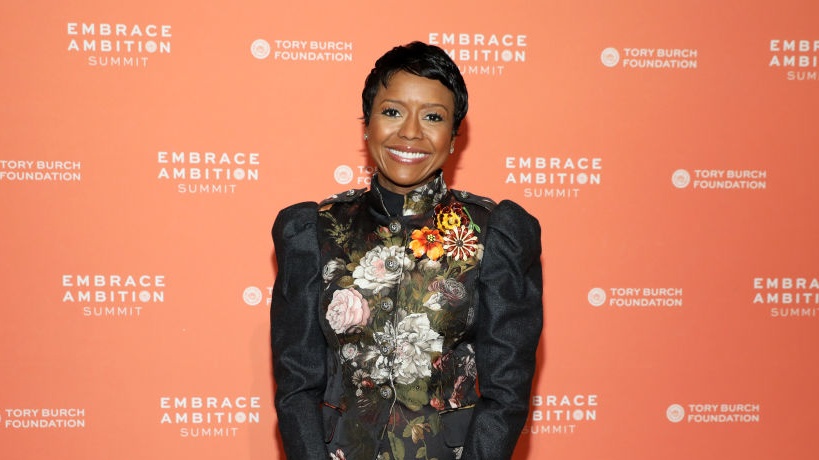Amid the recent months of protests and the global effort to eradicate symbols attached to racism, Princeton University is erasing the name of a tainted U.S. president and recognizing a celebrated Black business woman.
The Ivy League school, which voted to remove Woodrow Wilson's name from a residential college in June, has now given the honor to Mellody Hobson, who is a Princeton alumna and a major donor to the institution. The new Hobson College, which will be built at the site of the former Wilson College, is scheduled to start construction in 2023 and expected to open its doors in 2026.
“Along with class year, their residential college affiliation is one of the most significant identifiers for Princeton students,” Jill Dolan, dean of the college, said in a statement. “That future students will be able to say, ‘Meet you at Hobson,’ and that Hobson will be a proud part of our annual ‘Clash of the Colleges’ competition during first-year orientation will transform our future students’ experiences.”
Hobson and her husband, filmmaker George Lucas, gave the lead gift to the school to begin building a new residential college. The building will be the university's first residential college named after a Black woman.
“This extraordinary gift will be transformative for Princeton,” university president Christopher L. Eisgruber said. “It will enable us to improve the student experience at Princeton and to reimagine a central part of our campus, while also recognizing a remarkable woman who is a positive, powerful force for change in the world."
After graduating from Princeton in 1991, Hobson became the co-CEO of Ariel Investments, a Chicago-based company specializing in stocks. The 51-year-old has also worked as an analyst for CBS and ABC news programs, The New York Daily News reported. The Chicago native serves as chair of After School Matters, a nonprofit connecting teens with after-school programs and summer jobs in her hometown.
“No one from my family had graduated from college when I arrived at Princeton from Chicago, and yet even as I looked up at buildings named after the likes of Rockefeller and Forbes, I felt at home,” the philanthropist said. “My hope is that my name will remind future generations of students — especially those who are Black and Brown and the ‘firsts’ in their families — that they too belong."
Princeton's decision to remove Wilson's name was inspired by the global protests which followed the ongoing cases of Black lives perishing in the hands of police. The board said it's time to stop extolling Wilson’s achievements while ignoring his failures.
"We must therefore ask whether it is acceptable for this University’s school of public affairs to bear the name of a racist who segregated the nation’s civil service after it had been integrated for decades," the university released in a statement. "This question has been made more urgent by the recent killings of Breonna Taylor, Ahmaud Arbery, George Floyd, and Rayshard Brooks, which have served as tragic reminders of the ongoing need for all of us to stand against racism and for equality and justice."
Wilson, once also served as Princeton's president, refused to admit any Black students and wiped out the earlier admissions of Black students, The Soapbox reported. The disgraced president is remembered for often supporting the Southern point of view expressing ideology aligning with the Ku Klux Klan.
“The President surrounded himself with men whose racial views were Southern in the narrowest sense,” a historian said while describing Wilson's cabinet.
Albert Burleson, who was designated as postmaster general in Wilson's cabinet, encouraged racial segregation throughout the federal government. The President didn't intervene to discourage such racist policies.
According to the Philadelphia Inquirer, Hobson received the Woodrow Wilson Award from Princeton last year. But the businesswoman said it's strange to get an award named after someone who would not have accepted her.
"Despite the school's colors, President Wilson failed to see that orange and Black belong together," she said while getting the award.
Hobson and her husband also received the Carnegie Medal of Philanthropy in 2019.
“Our shared passion is education and its power to transform lives — as it did ours,” the entrepreneur said.

